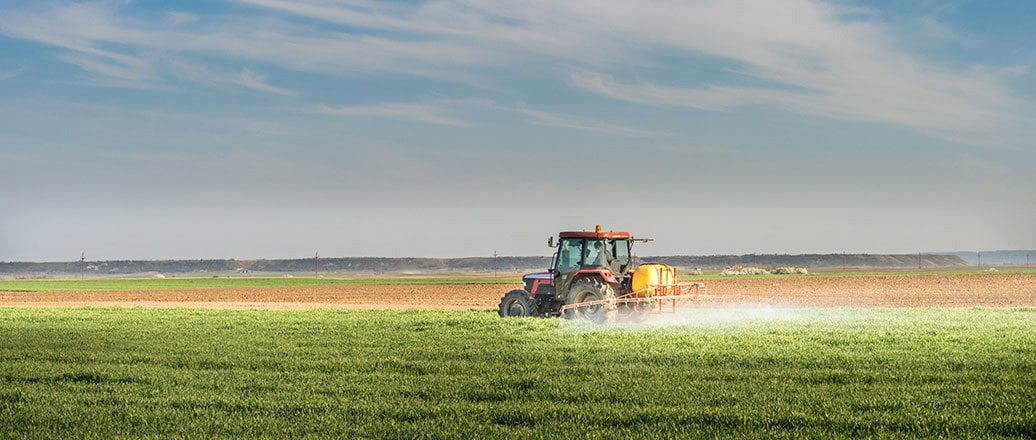Key tasks in Europe after the Second World War were to ensure sufficient food supply and get industry going. Hydro contributed to both. In the 1980s the company strengthened its position as supplier of plant nutrition.
Europe has not always been a cornucopia of good things to eat. At the end of the Second World War, there was a shortage of most things, including food. Ensuring a satisfactory supply of food and getting industry going again were two top priorities for governments. Hydro has contributed to both, while building up its own position decade by decade.
It was clear that more industrial workers would have to be recruited from the farms, which again meant that agriculture would depend on greater use of agricultural machinery, better tools and more widespread use of industrially produced plant nutrition.
Higher food production would also mean cheaper food for consumers. The European Community (now EU) was established and the idea of supranational organization of the agricultural market saw the light. This later took the form of the Common Agricultural Policy (CAP).
The aims were stated clearly in the Tract of Rome: increase agricultural production, ensure an adequate standard of living for farmers, stabilize the markets, guarantee supply, produce reasonably priced food.
CAP has become increasingly important for agriculture in Western Europe. Greater self-sufficiency led to large surpluses, and from the middle of the eighties the policy encouraged reducing surplus production, lower subsidies and less environmental impact.
Hydro remains optimistic
The future looked uncertain for the European fertilizer industry. Many producers saw their profits fall and had to implement change and efficiency boosting measures.
Hydro had been in the market since the turn of the century, and maintained an offensive strategy throughout the eighties and nineties. It was in the eighties that Hydro took the leap to become the leading mineral fertilizer producer in Europe through a series of acquisitions, efficiency measures and the building of new plants.
European leader
In 1979 Hydro took over the Dutch company NSM, and two years later bought a 75 per cent stake in Supra AB in Sweden. In 1982 the company purchased the Fisons fertilizer operation in England and gained a majority shareholding in Korn- og Foderstofkompagniet in Denmark. This was followed in 1985 by the purchase of the German company Veba. One year later, Hydro took over 80 per cent of the French fertilizer company Cofaz. From 1989, more and more of Hydro’s marketing operations in Western Europe came to be coordinated in a new unit in Brussels.
A great deal of money was spent on purchasing plants, but altogether Hydro invested more money in renewing existing plants and building new ones. The overall result was that company became market leader in Western Europe.
Meanwhile Hydro’s fertilizer activities were also growing extensively outside of Europe. Overseas subsidiaries, new sales offices and new terminals were important steps in expanding the company’s operations.
Trygve Refvem became head of Hydro’s fertilizer operation in 1988. By this time most of the major acquisitions had been made. Hydro had entered into a phase where the most important task was to get the new units to function in a single organization, to increase efficiency, cut costs and renew older plants.
European approach
“In the short-term we would probably have made more money from financial investments, but short-term profit was not our main aim,” said Refvem in the autumn of 1990.
He also anticipated the future EU inner market in 1993: “In many ways we already have a Pan-European market. The EU inner market will give us freer competition and new opportunities, for example in distribution. These are challenges that will require a distinctly European approach,” he said.
The nineties proved to be another period of adjustments and change, partly due to the collapse of the Soviet Union and entry of low price fertilizer from Eastern Europe into the West European market.
Hydro Agri held its position in the EU and continued its expansive line in the markets outside of Europe and became the only supplier of plant nutrition and agronomic services on all five continents.
Updated: August 18, 2020






